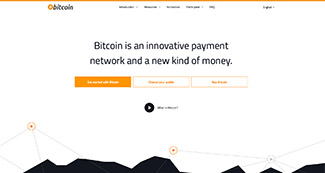
In yet the latest shakeup within the cryptocurrency ecosystem, the United States SEC has put a muffle on crypto staking. Using online exchange Kraken as a sacrificial lamb, this move is intended to provide the community with a greater sense of clarity.
However, it’s just as likely to lead to significant headaches for similar platforms. What implications might the Kraken clampdown cause and could we soon witness yet further market fallout? Let’s examine what the pros at Crypto Lists have to say.
What’s the Deal with Crypto Staking?
Go directly to
Crypto staking refers to the process of tying up one’s assets for a relatively long period of time in order to ensure the functionality of a blockchain. As a result, users will be provided with predictable yields (similar in some ways to a high-interest savings account).
At first glance, staking actually makes a good deal of sense. Similar to investing in an IPO before flotation, this strategy should (in theory) provide users with stable returns while allowing them to get in on the “ground floor” of an emerging blockchain. The problem here is that the Securities and Exchange Commission has expressed concerns over the transparency (yes… that word once again) of such opportunities.
Release the Kraken?
The SEC recently chose to dig its teeth into Kraken; an online crypto exchange founded in 2011 that caters to clients based out of the United States. SEC officials claim that Kraken failed to provide its customers with full disclosure and that it did not register the program with the proper authorities. As a result, the firm will now be forced to pay a tidy $30 million dollars in restitution to the commission itself.
Basically, the SEC stated that proof-of-stake blockchains must supply details such as how the company in question intends to protect the staked assets of its clients. This seems to make sense in some ways when we consider the marketing-laden terms such as “rewards”, “earn” and “APY” that are often used to promote blockchain staking.
Let’s also remember that Kraken promised its staked customers returns of up to 20 percent per annum if they locked up their funds for a predetermined period of time. Not only might this appear too good to be true, but we’re forced to wonder what would happen if Kraken failed to deliver on such promises. The result is that Kraken will end its crypto staking program in the US alongside the financial penalty.
We’re now forced to ask an important question. Was this a one-off penalty designed to encourage blockchains to voluntarily comply with SEC staking guidelines or might we soon witness other firms falling under such a decidedly unwelcome spotlight?
Does this Move Make Sense?
For better or for worse, blockchains and cryptocurrencies in general have always been about providing investors novel ways to enjoy a high ROI and to become involved with a decentralized trading platform. It seems as if the SEC wishes to further clamp down on such levels of flexibility. Having said this, staking does indeed pose several inherent risks such as:
- A lack of liquidity.
- Relatively high minimum stakes.
- A loss of asset value due to unforeseen market volatility.
- Slashing (firms that are forced to liquidate a portion of their existing capital due to regulatory violations).
In any of these circumstances, it’s clear to see that investors need to be properly informed in advance. So, some of the concerns expressed by the SEC are actually valid.
Potential Market Implications
We’re left to wonder about the future of crypto staking in the United States. If we assume that further restrictions will be implemented, it’s only logical to assume that such operations will look elsewhere to ply their trade. This could stifle domestic markets in the US and lead to an exodus of traders who are looking to leverage long-term growth.
On the other side of the coin, it’s also clear to understand why companies need to back up promises with the relevant terms and conditions. This has already been well established within the traditional investment community. There’s no reason to see why the cryptocurrency ecosystem should be any different.
A ban on crypto staking could spell disaster for blockchains which rely upon this strategy to raise capital. In the same respect, it’s also apparent that transparency is vital for the traders themselves. The main question is whether or not we can find a balance between “buyer beware” and long-term crypto rewards.
Supply: 18,925,000 / 21,000,000
Release date: January 3, 2009
Description: Buy BTC and escape authoritarian legislation!
Risk warning: Trading, buying or selling crypto currencies is extremely risky and not for everyone. Do not risk money that you could not afford to loose.





 Transfer BTC faster than ever on Bet Panda casino
Transfer BTC faster than ever on Bet Panda casino Start off your Monday with a 1 BTC bonus at Cryptorino
Start off your Monday with a 1 BTC bonus at Cryptorino Two no-KYC casinos with bountiful BTC bonuses!
Two no-KYC casinos with bountiful BTC bonuses! Four stage 100 mBTC bonus on Power Up casino
Four stage 100 mBTC bonus on Power Up casino Mt. Gox Moves 142 000 Bitcoin: Will the sell off continue?
Mt. Gox Moves 142 000 Bitcoin: Will the sell off continue?


























